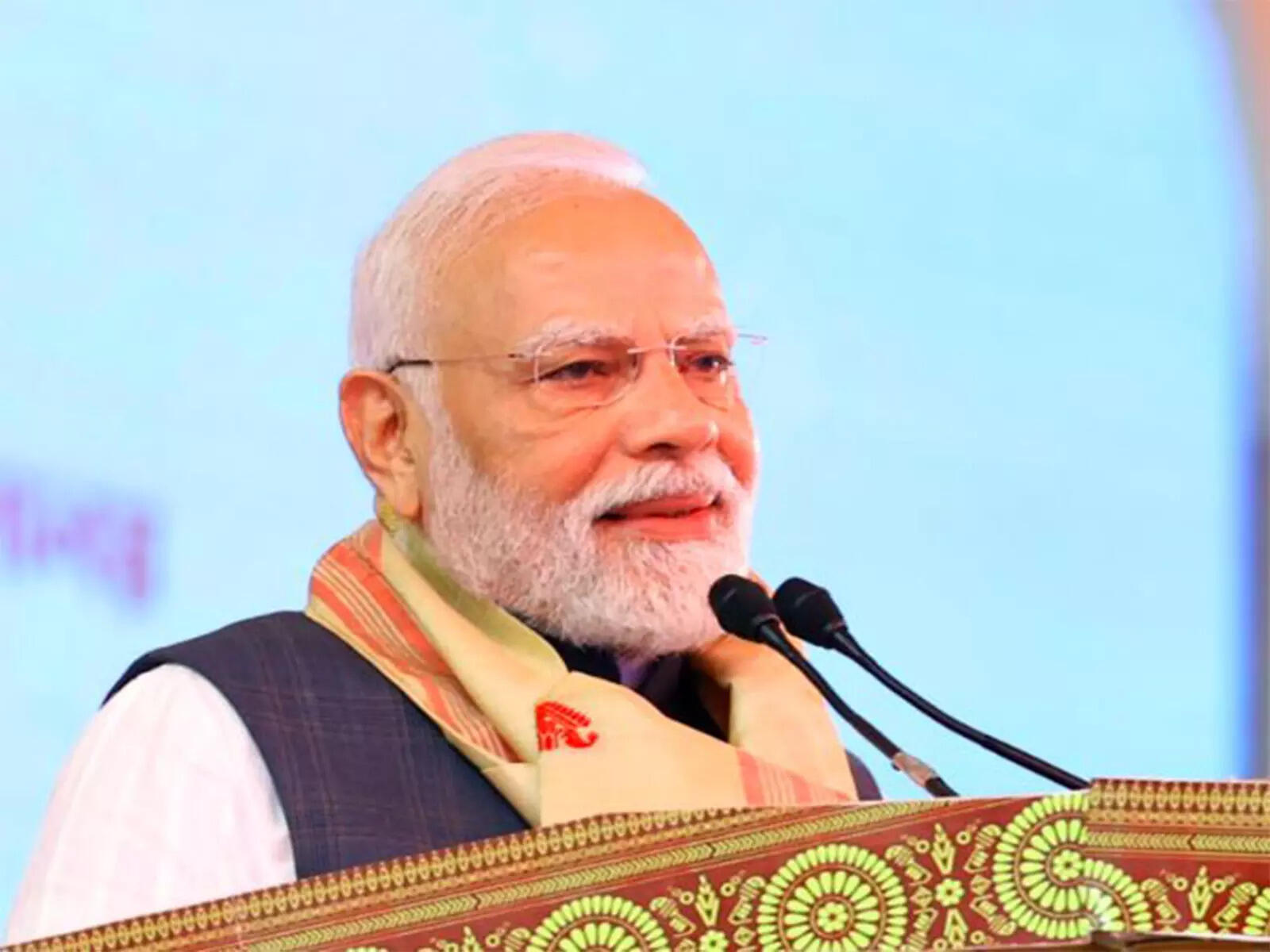
In the 127th episode of Mann Ki Baat, broadcast on 26 October 2025, Prime Minister Narendra Modi reflected on the convergence of India’s cultural traditions, environmental initiatives, indigenous innovations, and collective civic spirit.
Delivered amid the festive season, the address encapsulated themes of social unity, self-reliance, ecological stewardship, and national pride.
Festivals as Expressions of Unity and Faith
Opening the address with greetings for the festive period, the Prime Minister observed that “the entire country is immersed in the festive spirit.” He noted the devotional strength of women observing Chhath Vrat, describing it as “truly inspiring.”
“The Mahaparva of Chhath is a reflection of the deep unity between culture, nature, and society,” he said, adding that gatherings at the Chhath ghats serve as “the most beautiful example of India’s social unity.”
He extended special greetings to citizens of Bihar, Jharkhand, and Purvanchal, while inviting Indians worldwide to participate in the celebrations: “No matter where you are; within the country or at any corner of the world… do participate in the Chhath festival.”
Operation Sindoor and the Spirit of Self-Reliance
The Prime Minister linked the festive atmosphere to India’s recent achievements, highlighting Operation Sindoor as a national source of pride. “This time around, lamps of joy were lit even in those areas where the darkness of Maoist terror once prevailed,” he remarked. Citizens’ messages, he said, reflected a collective desire for the “complete eradication of Maoist terror.”
He also referred to the GST Bachat Utsav, noting widespread enthusiasm for purchasing indigenous products.
“The purchase of indigenous goods in the markets has increased tremendously,” he stated. Recalling his earlier appeal for reduced oil consumption, he added, “I had urged for a 10 percent reduction in the consumption of edible oil, and people have displayed a very positive response.”
Citizen-Led Environmental Innovations
A large portion of the address celebrated grassroots environmental efforts. In Chhattisgarh, he praised Ambikapur’s “Garbage Cafes” where “you get a full meal in exchange for plastic waste.” In Bengaluru, he lauded engineer Kapil Sharma and his team for rejuvenating “40 wells and 6 lakes” and involving both corporates and local citizens in restoration campaigns.
He also discussed Gujarat’s mangrove plantations, citing them as an example of ecological regeneration. “Five years ago, the Forest Department started planting mangroves near Dholera… today, mangroves have spread over three and a half thousand hectares,” he said. The campaign’s ecological benefits, including the rise in dolphins, crabs, and migratory birds, have improved livelihoods for local fish farmers.
Quoting Sanskrit scripture—“धन्या महीरूहा येभ्यो, निराशां यान्ति नार्थिनः”—he reminded citizens that “blessed are the trees and plants from whom, those who seek do not return disappointed.” He urged people to participate in the Ek Ped Maa Ke Naam campaign, promoting afforestation as an act of gratitude.
Indigenous Breeds in National Service
Highlighting self-reliance in security forces, the Prime Minister revisited his earlier appeal to adopt Indian dog breeds.
“BSF and CRPF have increased the number of Indian breed dogs in their contingents,” he said, noting that the BSF’s National Training Centre in Tekanpur is focusing on the Rampur Hound and Mudhol Hound, while CRPF’s Bengaluru school trains Mongrels, Kombai, and Pandikona breeds.
He mentioned the achievements of Ria, a Mudhol Hound trained by BSF that won first prize at the All India Police Duty Meet in Lucknow. “Last year, during a patrol in a Maoist-affected area of Chhattisgarh, an indigenous dog of CRPF detected 8 kilograms of explosives,” he said, congratulating the forces for showcasing indigenous capability.
He also announced that such dogs would be featured during the Ekta Diwas parade at Ekta Nagar on 31 October, commemorating Sardar Patel’s birth anniversary.
Sardar Patel and the Legacy of National Unity
The address paid rich tribute to Sardar Vallabhbhai Patel on his 150th birth anniversary. The Prime Minister described Patel as “one of the greatest luminaries of the nation in modern times,” recalling his brilliance as a lawyer, reformer, and freedom fighter. He credited Patel with “laying a strong foundation for India’s bureaucratic framework” and for his “unparalleled efforts for the unity and integrity of the country.”
Calling upon citizens to join the Run for Unity, he said, “This should become an opportunity for youth awakening; this run for unity will strengthen unity. This will be our true tribute to that great luminary who united India.”
Koraput Coffee and Rural Transformation
Turning to the theme of agriculture and rural livelihoods, Modi spotlighted coffee growers in Odisha’s Koraput region. “Koraput coffee tastes amazing… besides the taste, coffee cultivation is also benefiting people,” he said. He described individuals who left corporate careers to cultivate coffee “through their sheer passion,” adding that many women “have gained both respect and prosperity through coffee.”
Celebrating the diversity of Indian coffee—from Chikmagalur and Coorg to Wayanad and Malabar—he declared: “India’s coffee is coffee at its finest. It is brewed in India and loved by the world.”
Revival of Sanskrit and Cultural Continuity
The Prime Minister devoted a section to Sanskrit, describing it as “not only the language of our scriptures, Vedas, Upanishads, and Puranas, but also once a language of communication.” He acknowledged the neglect of Sanskrit in the colonial and post-colonial eras but observed a renewed interest today: “The world of culture and social media has lent Sanskrit a new lease of life.”
He praised young creators using digital platforms to popularise Sanskrit—mentioning Yash Salunke, Kamala and Janhavi, Samashti, and Bhavesh Bhimnathani—who are producing educational, musical, and humorous content. “Language is the carrier of the values and traditions of any civilization,” he noted, appreciating the youth “fulfilling their duty towards Sanskrit.”
Vande Mataram: 150 Years of a National Song
Marking an upcoming milestone, Modi reflected on the 150th anniversary of Vande Mataram. “Just a few days from now, on the 7th of November, we will be entering the 150th year of the celebration of ‘Vande Mataram’,” he said, recalling its first rendition by Rabindranath Tagore in 1896.
Describing the song as “a surge of emotions in our hearts,” he stated: “It makes us experience the maternal affection of Ma Bharati… If there is a moment of difficulty, the chant of ‘Vande Mataram’ fills 140 crore Indians with the energy of unity.”
Citing the Vedic sentiment ‘Mata Bhumih Putro Aham Prithivya’, he described Vande Mataram as a spiritual continuum of India’s civilizational consciousness and invited citizens to share ideas for the celebration under the hashtag #VandeMataram150.
Remembering Komaram Bheem and Birsa Munda
The Prime Minister paid homage to tribal heroes who resisted oppression. He recounted the courage of Komaram Bheem, who “stood up against the injustice of the Nizam” and inspired the tribal community in Hyderabad. “He only lived for 40 years, but during his lifetime, he left an indelible mark on the hearts of countless people,” Modi said.
He also remembered Bhagwan Birsa Munda, describing his struggle for freedom and tribal rights as “unparalleled.” Recalling his visit to Ulihatu village, the Prime Minister said, “I touched the soil of that land to my forehead in reverence.” The forthcoming Janajateeya Gaurav Diwas on 15 November, he said, would honour such great tribal luminaries.
Citizen Participation and National Renewal
Concluding the address, the Prime Minister reaffirmed the participatory spirit of Mann Ki Baat: “The topics we discuss in ‘Mann Ki Baat’ inspire people to do something good, something innovative for society.” He encouraged citizens to share examples of individuals and groups “dedicated to transforming society with a spirit of service,” promising to highlight such stories in future episodes.
He closed with gratitude and optimism: “We will meet again next month in another episode of ‘Mann Ki Baat’, with some new topics. Until then, I bid you adieu. Thank you all very much. Namaste.”
Conclusion
The 127th Mann Ki Baat thus traversed an extraordinary spectrum—from devotion and festivals to environmental conservation, rural innovation, cultural revival, and national integration.
The Prime Minister’s address positioned these diverse themes within a single framework of civic pride and participatory nation-building. His recurring emphasis on unity—cultural, ecological, and societal—was epitomised in his invocation: “The Mahaparva of Chhath is a reflection of the deep unity between culture, nature, and society.”
In this synthesis of tradition and modernity, the address reaffirmed the continuing resonance of India’s civilizational ideals in the nation’s democratic and developmental journey.

